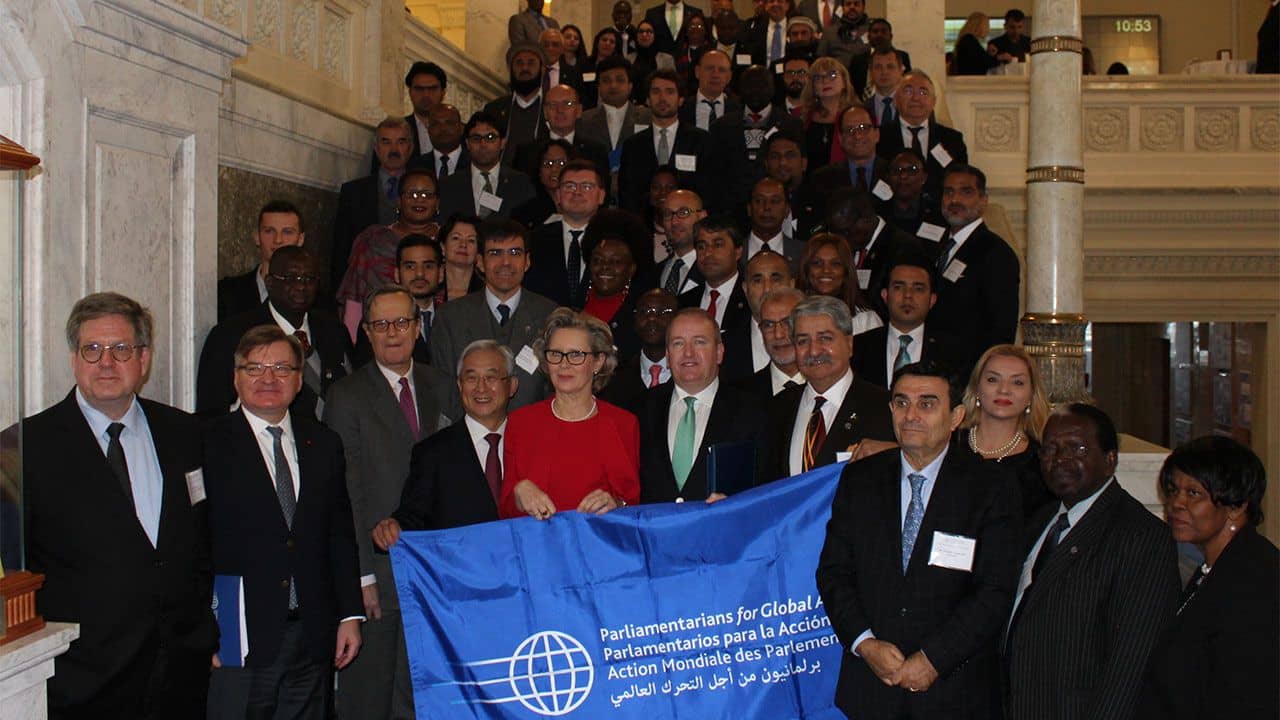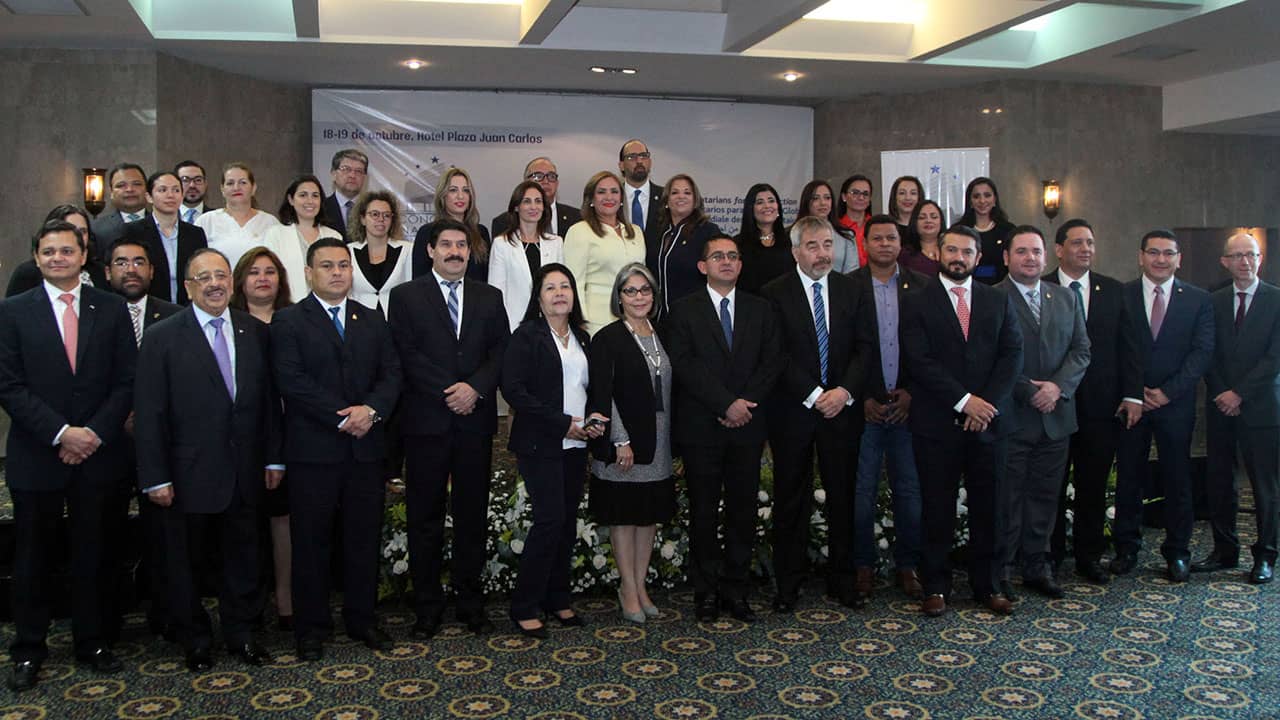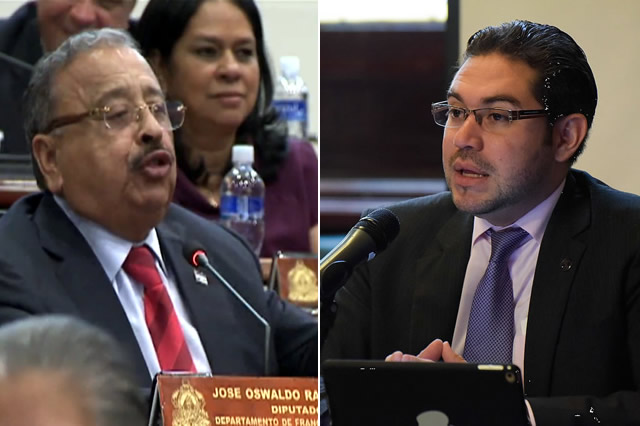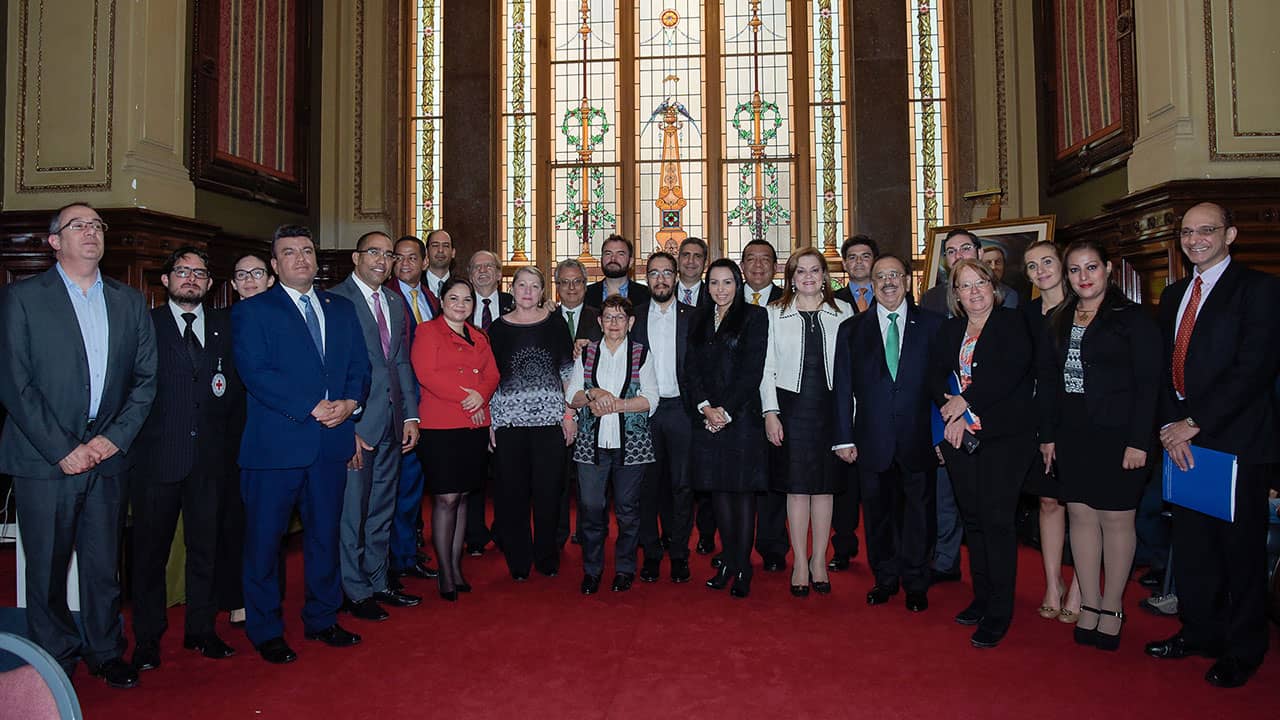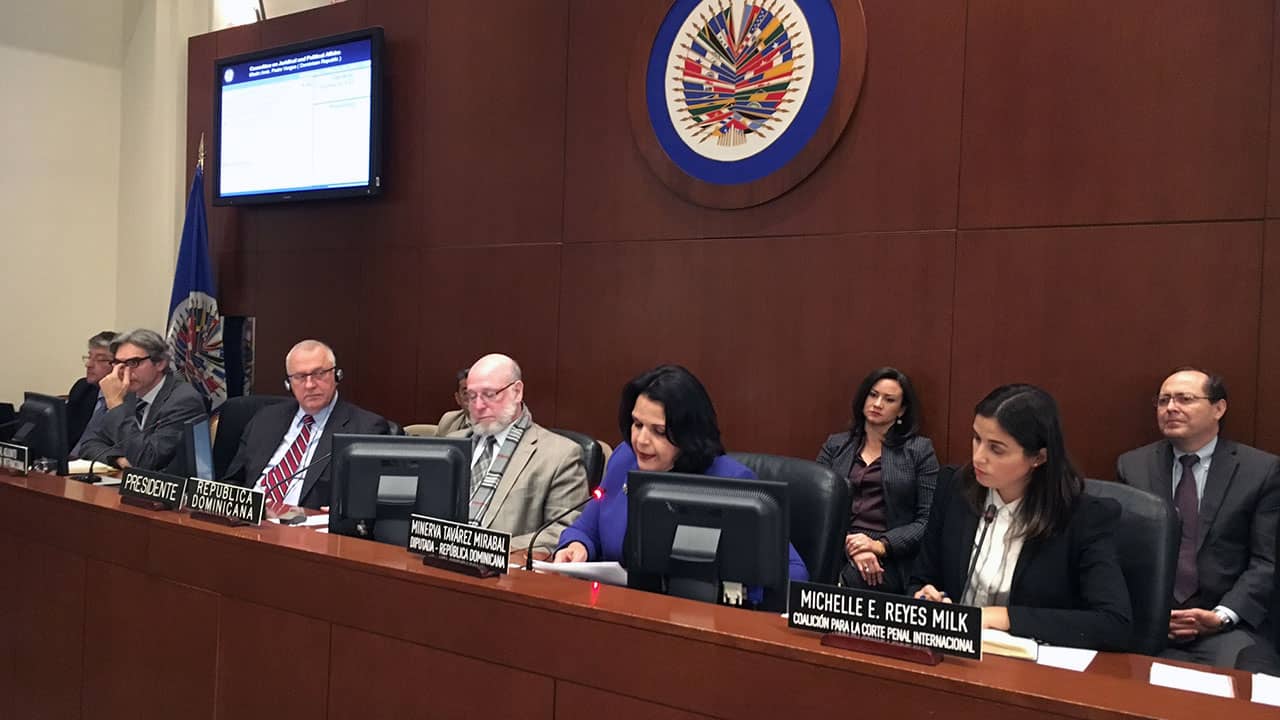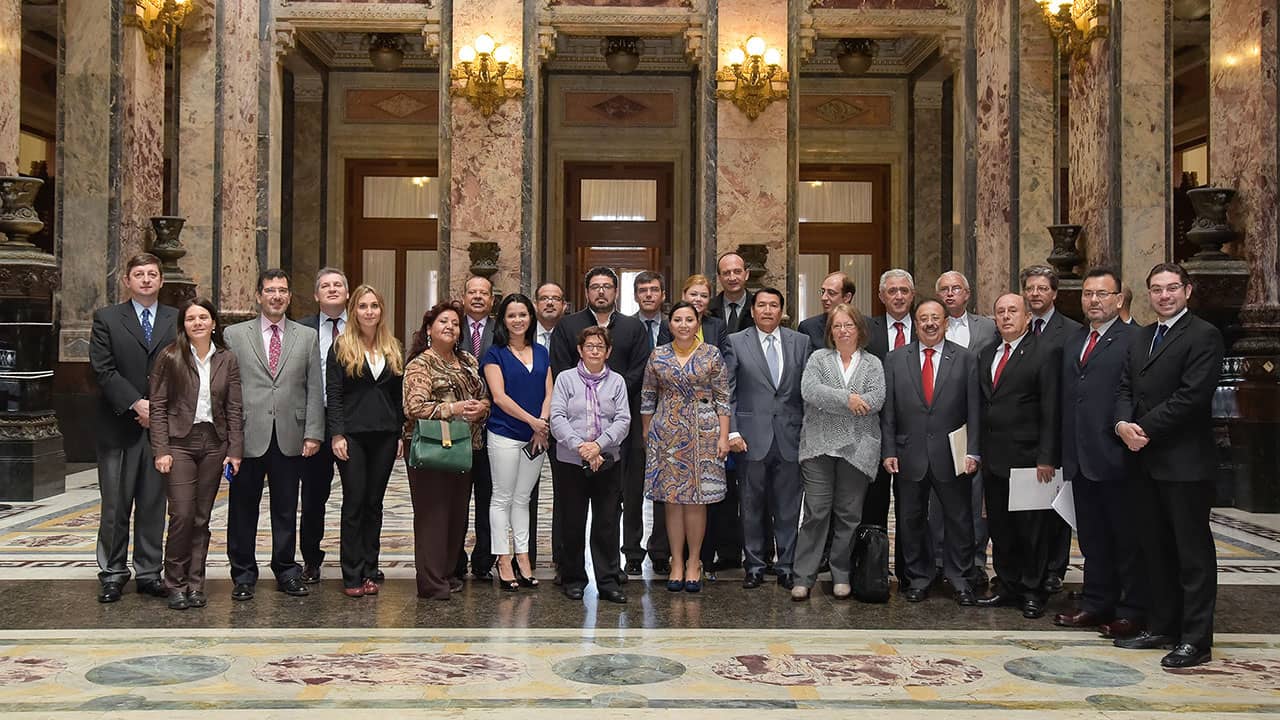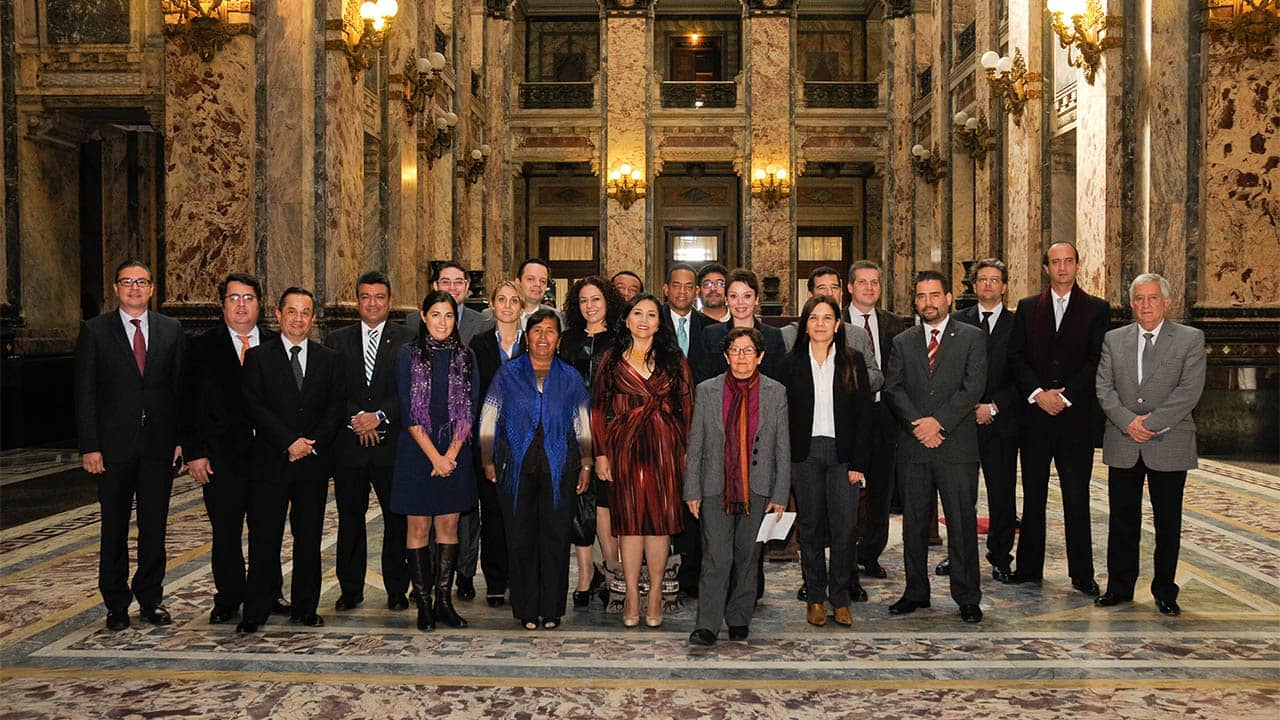PGA has been working with the parliamentarians from Honduras, a State Party of the Rome Statute, to promote the fight against impunity for the most serious crimes of international concern. As of September 2015, PGA’s work focuses on the full implementation of the Rome Statute and the promotion of Honduras cooperation with the ICC as well as the ratification of Kampala Amendments.
Rome Statute
Honduras signed the Rome Statute on 7 October 1998, and ratified it on 1st July 2002, becoming the 76th State Party.
Kampala Amendments of 2010
Honduras has not yet ratified the Amendments to the Rome Statute adopted by the 2010 Review Conference (Kampala Amendments) on the crime of aggression and on the use of certain weapons in non-international armed conflicts. However, under the leadership of PGA member, Dip. Jorge Calix, on 9 October 2014 the Legislative Assembly of Honduras discussed and approved, with 101 votes in favor from 128 total votes, a motion to request the Government to send the bill of ratification of the Kampala Amendments. The motion was sent on the 22 of October and the Parliament is awaiting for the government decision on this regard.
On 6 February, 2015, PGA members Dip. Jorge Calix and Dip. Beatriz Valle met with Mr. Arturo Corrales Alvarez, Minister of Foreign Affairs of Honduras, who expressed his commitment to send soon the Kampala Amendments to the Rome Statute for discussion to the Parliament.
Status on the domestic implementation of the Rome Statute
Although a Bill to amend the Criminal Code, including in relation to the crimes included in the Rome Statute is under revision at the parliament, such a bill has not been approved.
PGA member, Dip. Jorge Calix tabled in September 2015 a bill that contains the national mechanisms of cooperation with the ICC. The Bill was sent to the Constitutional Affairs Committee where is being discussed.
Agreement on Privileges and Immunities of the Court (APIC)
On 1 April 2008, Honduras deposited its instrument of accession to the Agreement on the Privileges and Immunities of the ICC.
Additional Agreements
Honduras signed Bilateral Non Surrender Agreement with the USA on September 19, 2002. Approved by the parliament on May 30, 2003 by a vote of 65 to 62.
Progress and PGA Action
After the participation of Dip. Jorge Calix and Dip. Beatriz Valle in the Sub-Regional Working Group on Challenges for the Effectiveness of the Rome Statute system in the Americas in Montevideo, Uruguay 2014 and the participation of Dip.Alejandra Mancia Gomez and Dip. Jorge Calix in the Parliamentary Workshop on the Ratification and Implementation of the Rome Statute and the Kampala Amendments in Dominican Republic, in May 2015, PGA provided technical assistance with the PGA Reference Law on Cooperation with the ICC for Latin American Countries.
After adapting such reference law to the national procedures, Dip. Calix tabled the Bill on Cooperation with the ICC that is currently under revision by the Constitutional Affairs Committee.
In April 2014 PGA has been in contact with the Ambassador of Honduras to The Netherlands, Amb. Aguilar, and to Ana Pineda, ex- Ministry of Justice and Human Rights of Honduras to promote the immediate adoption of a Cooperation Law given the fact that Honduras is a country under Preliminary Examinations by the Office of The Prosecutor.
Parliamentary Action
On 9 September 2015, Dip. Jorge Calix tabled a bill to introduce effective national cooperation mechanisms with the ICC.
On 6th February 2015 PGA members Dip. Jorge Calix and Dip. Beatriz Valle met with Mr. Arturo Corrales Alvarez, Minister of Foreign Affairs (MFA) of Honduras, who expressed his commitment to send soon the Kampala Amendments to the Rome Statute and the Arms Trade Treaty (ATT) for discussion to the Parliament.
Under the leadership of PGA member, Dip. Jorge Calix, on 9 October 2014 the Legislative Assembly of Honduras discussed and approved, with 101 votes in favor from 128 total votes, a motion to request the Government to send the bill of ratification of the Kampala Amendments. The motion was sent on the 22 of October and the Parliament is awaiting for the government decision on this regard.
On July 2013 Honduras co-signed a stamen with other Latin American Rome Statute Parties, Communique on the International Criminal Justice day, calling for the UN to continue supporting ad-hoc tribunals, special tribunals established after arrangements between States and the organization and the ICC. Also, it recognizes the role of the ICC in maintaining international stability, praises its proceedings as impartial and unbiased, and invites other countries to accede to the Rome Statue.
Human Rights Council Universal Periodic Review (UPR)
Honduras accepted the following 3 recommendations from the ICC for the 22nd session of the Universal Periodic Review (UPR), which it considers already implemented or in the process of implementation: Fully adapt their legislation to the Statute of the International Criminal Court; fully align its national legislation with the Rome Statute of the International Criminal Court; fully implement the Rome Statute of the International Criminal Court into national law.
Additional Relevant Information
As a member of the Organization of American States, Honduras has supported the promotion of the International Criminal Court through the adoption of an annual resolution by the General Assembly of the OAS, as well as by the holding of a working meeting of high level within the Political and Juridical Affairs Committee of the OAS.

